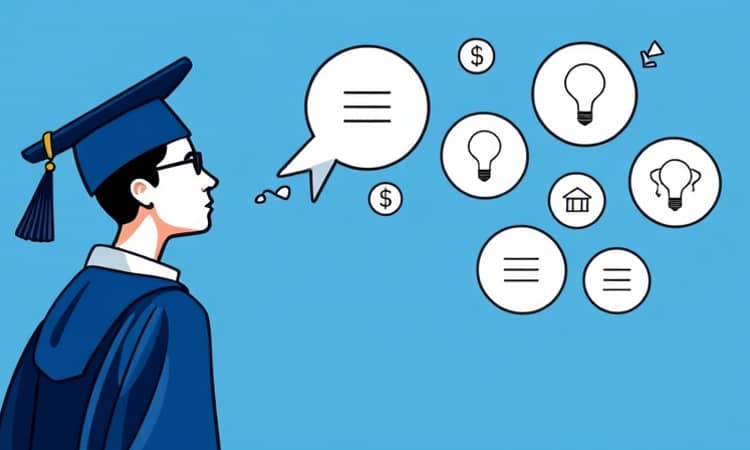In the United States, student loan debt has reached staggering levels, affecting millions of graduates. Many are exploring options to manage their repayment more effectively. One popular strategy is student loan refinancing, which can potentially lower monthly payments and interest rates.
But is refinancing the right option for everyone? It's essential to evaluate your financial situation, your loan types, and your long-term goals before deciding if refinancing is right for you.
This comprehensive guide will discuss the ins and outs of student loan refinancing, including its benefits and potential risks, to help you make an informed decision.
We'll also cover when to refinance and provide some practical tips to make the process successful. Let's dive into understanding what student loan refinancing really means.
What is Student Loan Refinancing?
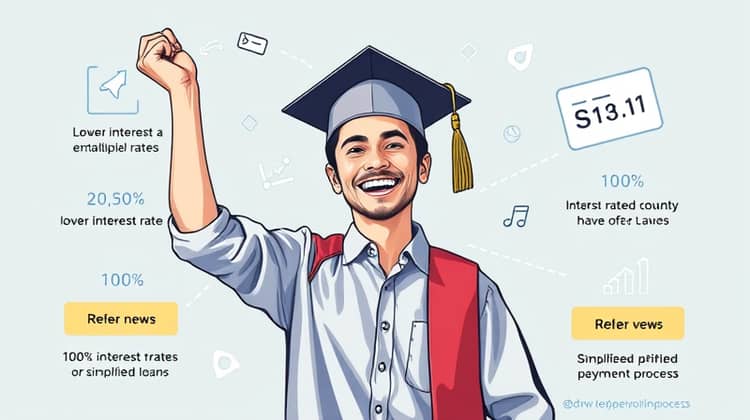
Student loan refinancing is the process of consolidating your existing federal or private student loans into a new loan, ideally with a lower interest rate. By refinancing, borrowers can simplify their repayment process by combining multiple loans into one single monthly payment.
Typically, this new loan will have different terms, such as a different interest rate or repayment duration, which can lead to lower monthly payments. It is often pursued by graduates who have improved their financial status since graduating and are eligible for better interest rates now.
Refinancing can be done through various private lenders that assess your creditworthiness and financial history to offer you a new loan with favorable terms. However, once you refinance federal loans, they lose their federal benefits such as income-driven repayment plans and loan forgiveness programs.
It's crucial to understand how refinancing works and the implications it may have on your overall debt repayment strategy. This step can significantly impact your financial future, so careful consideration is necessary.
Benefits of Refinancing Student Loans

Refinancing student loans can offer several advantages. One of the primary benefits is the potential for a lower interest rate, which can lead to significant savings over time. If your credit score has improved since you first took out your loans, you may qualify for better rates compared to your original loan terms.
Another benefit is the flexibility that refinancing provides. Graduates can choose the loan repayment terms that best align with their financial goals, whether that means a shorter term with higher payments or a longer term with lower monthly payments. This can ease financial strain and create a repayment schedule that fits one's budget.
Lastly, refinancing can simplify monthly finances by consolidating multiple loans into one. This approach reduces the likelihood of missed payments and the stress that comes with managing multiple due dates. Being able to focus on a single loan can streamline your budgeting process.
Furthermore, many lenders offer incentives or perks that can come with refinancing options, making it an attractive choice for those looking to manage their student debt more effectively.
- Lower interest rates can save money in the long run.
- Flexibility in choosing repayment terms tailored to your budget.
- Simplifies monthly payments and reduces the chance of missed due dates.
In summary, refinancing can be advantageous for those who meet the necessary criteria. The right situation will help graduates save money and manage their loans more efficiently.
Risks and Downsides

While refinancing offers several benefits, there are also risks and downsides to consider. One major risk is the potential loss of federal loan benefits. If you refinance federal student loans into a private loan, you will forfeit perks such as income-driven repayment plans, loan forgiveness options, and deferment or forbearance rights.
Additionally, if you do not carefully compare loan offers, you might end up with a loan that doesn't suit your financial needs. The terms can vary widely among lenders, so it's important to research thoroughly to avoid overpaying in interest or extending your debt unnecessarily.
- Loss of federal loan benefits and protections.
- Potential for higher overall costs if poor loan terms are chosen.
Understanding these risks is vital for making an informed refinancing decision that fits your financial future.
When Should You Refinance?
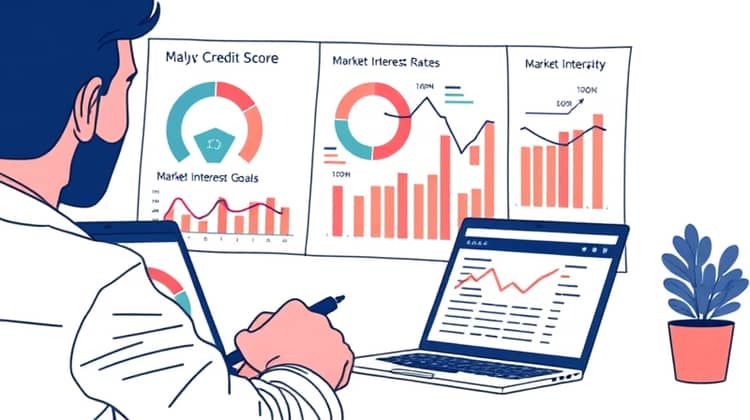
Deciding when to refinance your student loans can significantly affect your overall financial health. Generally, you should consider refinancing if you notice a substantial improvement in your credit score or financial situation since acquiring your loans.
Another good time to refinance is when interest rates in the market decrease. Keeping an eye on market trends can suggest when you might save considerably by refinancing. This is especially true if your current loans are at high-interest rates.
Lastly, it's important to assess your long-term financial goals. If you aim to pay off your student loans quickly or prioritize lower monthly payments, refinancing may align with these objectives.
- When your credit score improves.
- If market interest rates decrease significantly.
- To align with your long-term financial goals.
Timing your refinancing appropriately can enhance your chances of success and savings.
How to Refinance Your Student Loans
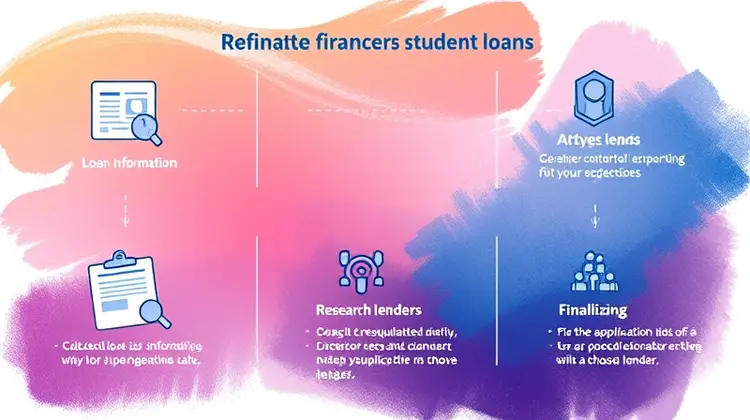
Refinancing your student loans involves several steps to ensure that you make the best financial decision. Start by collecting information on all your current loans, including their interest rates, monthly payments, and total balances.
- Research various lenders and compare offers to find the best interest rates and loan terms.
- Apply for prequalification with multiple lenders to understand the rates available to you without affecting your credit score.
- Choose the lender that offers the most favorable terms for your financial situation and finalize your application.
Following these steps can simplify the refinancing process and help you secure the best possible terms on your new loan.
Tips for Successful Refinancing
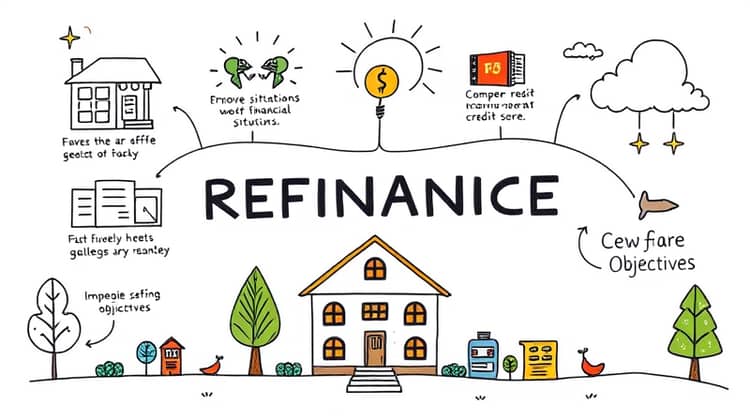
Successful refinancing takes careful planning and awareness of market conditions. Start by evaluating your financial situation thoroughly so that you know how much you'll need to borrow and what repayment terms are best suited to your needs.
- Improve your credit score before applying by addressing outstanding debts and ensuring timely payments.
- Compare multiple lenders to ensure you are getting the best rate available.
- Be clear on what you want to achieve with refinancing to maintain focus throughout the process.
Implementing these tips will enhance your chances of successfully refinancing your student loans and achieving better financial outcomes.
Conclusion
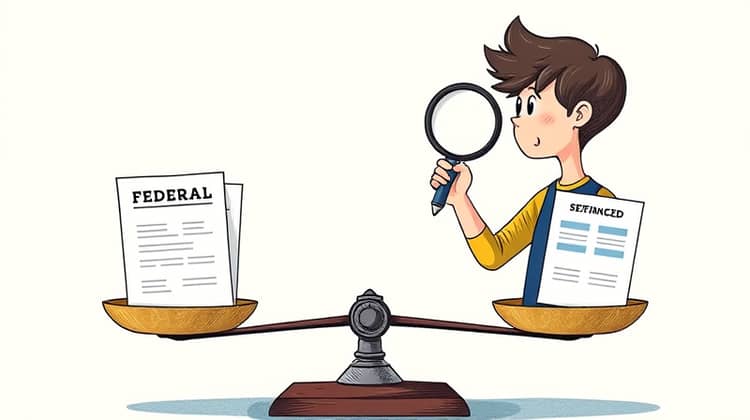
In conclusion, student loan refinancing can be a valuable tool for managing your student debt more effectively, but it is not without its risks. Understanding what refinancing entails, the potential benefits, and the downsides are crucial for making an informed choice.
As you think about whether refinancing is right for you, be sure to evaluate your overall financial goals and the current state of your loans. For some, refinancing can lead to substantial savings and a simpler payment process, while for others, sticking with federal loans may be the smarter choice.
Ultimately, the decision lies in your hands, but equipping yourself with factual information and assessing your personal situation can pave the way for more manageable student loans and a brighter financial future.

